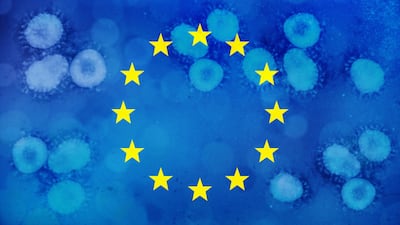Sierra Leone
Country
The European Commission has ordered more doses of the Pfizer/BioNTech vaccine to tackle COVID-19 “hotspots,” and has extended its export authorization scheme by three months. The EU’s procurement strategy has come under fire again, Lilly's antibodies have started a rolling review at the European Medicines Agency, and Sierra Leone has received its first coronavirus vaccines via the COVAX Facility.
Following the World Health Organization's declaration that the Zika virus outbreak in Latin America constitutes a global public health emergency of international concern (PHEIC), the European Commission is planning to mobilize €10m in emergency funding for research aimed at determining whether there is a link between the virus and severe brain malformations in newborns.
This past week in US regulatory, legislative, legal and political news affecting the biopharmaceutical industry included the indictment of a former GlaxoSmithKline PLC senior-level manager, who went from being regarded as one of the world's top protein biochemists to a becoming a thief, scheming with one of her coworkers to steal trade secrets from the London-based drug and vaccine maker; the Senate Health panel chairman's decision to take a step-by-step approach for overhauling the US biomedical enterprise, which ignores several measures, like one focused on antibiotics development, that were included in the House 21st Century Cures Act; and threats by House and Senate lawmakers to bring criminal contempt actions against former Turing Pharmaceuticals Inc. CEO Martin Shkreli if he ignores subpoenas to testify and turn over documents about why his firm hiked up the price of a more than 60-year-old drug; plus other Washington news.
Gavi, the global vaccine alliance, has promised Merck & Co. Inc. that it has a customer for its Ebola vaccine candidate rVSV?G-ZEBOV-GP, the only vaccine with Phase III data for the deadly viral infection, through the signing of an 'advance purchase commitment'.
In the midst of a crisis like the recent Ebola outbreak that swept through Guinea, Liberia and Sierra Leone, killing more than 11,300 people and sickening nearly 29,000, it's tempting to just throw everything the medical community has to offer at it in an attempt to save lives – something drug and vaccine makers and others conducting clinical trials often are under public pressure to do in desperate situations.
The story of the year for the biopharmaceutical industry in 2015 was most certainly the rumpus over drug prices – whether it was the uproar over the jacked up costs of older products by Turing Pharmaceuticals AG and Valeant Pharmaceuticals International Inc. or the deals the new kids on the block, the proprotein convertase subtilisin/kexin 9 inhibitors, Sanofi SA's and Regeneron Pharmaceuticals Inc.'s Praluent (alirocumab) and Amgen Inc.'s Repatha (evolocumab), had to make with payers to get past the fray.
Trudie Lang, Professor of Global Health Research at the University of Oxford, UK, was involved in running the clinical trial of the treatment used in the Ebola outbreak in West Africa earlier this year. Ian Schofield spoke to Professor Lang after her presentation at the recent Partnerships in Clinical Trials conference in Hamburg, and asked her about the ground-breaking trial, what the experience taught her about our preparedness for future outbreaks, and what more the industry could do.
The Johnson & Johnson company, Janssen Pharmaceutical, has started a Phase III trial of its Ebola vaccine in Sierra Leone – pushing on with R&D for the candidate despite the initial Ebola crisis having calmed and other big players developing competing late-stage immunization options.
The antivirval favipiravir (T-705), which is being developed by Fujifilm and its US subsidiary MediVector, may provide post-exposure prophylaxis (PEP) protection against Ebola, researchers reported in the British medical journal The Lancet Infectious Diseases.
Early results of an experimental Ebola vaccine being developed by Merck and its partner NewLink, which licensed the product from the Canadian government, showed the candidate, known as rVSV-ZEBOV, was 100% effective in protecting humans against the virus in a Phase III ring study being conducted in Guinea, researchers reported in the medical journal The Lancet on 31 July.
There were few surprises in the latest damning assessment about the poor response by the World Health Organization (WHO) to the Ebola crisis in West Africa – with many of the criticisms already laid out in previous reports, including in the global health group's own internal evaluation.

